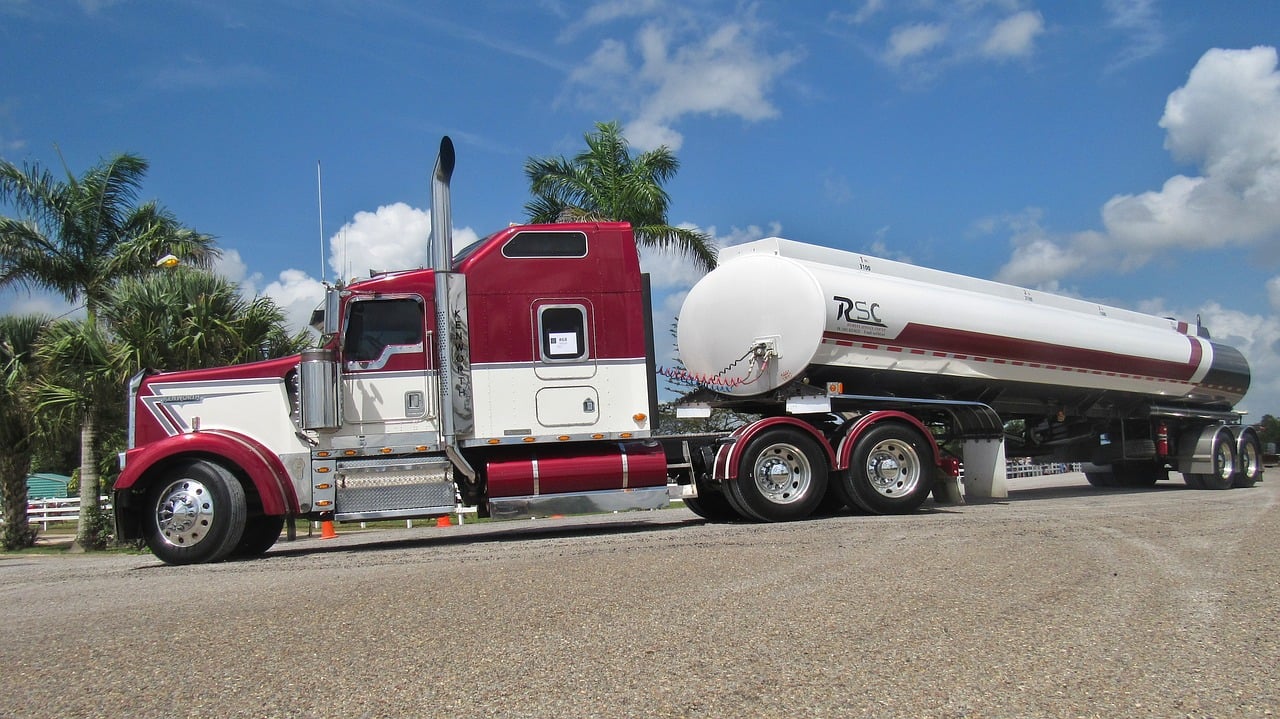All freight hauling jobs are not equal when it comes to managing the load being transported to the destination point. When it comes to your trucking technology business plan, here’s the information you need to know about liquid transport trailers.
While a standard flatbed or box container is a relatively simple transporting project, hauling liquids is altogether different for a variety of reasons. Tanker trailers are designed differently and also contain hydraulic pumping systems for loading and unloading tanker contents in many cases, and safety is of utmost importance throughout the transportation process. Drivers must be trained specifically in all potential tasks and all licensed tanker drivers are certified by the Federal Motor Carrier Safety Administration. Officially termed an endorsement, those who have completed the training successfully will also often be assigned a HAZMAT endorsement as well because many tanker loads contain hazardous chemicals and are placarded for all other drivers to see when in transport. Here are a few considerations for companies needing to prepare or unload a tanker at their facility.
Loading and Unloading Oversight
Some companies actually have specialist employees who do the loading and unloading of tankers at their facilities. Drivers are also typically certified in this process as well, but who performs the unloading usually depends on company policy. Regardless of the situation, a company employee or a member of management should be present when any tanker is being filled or drained. Problems happen quickly when anything malfunctions, such as the hydraulic pumping system on the truck, and quick thinking is crucial when a calamity occurs. Hazardous chemicals can burn the skin of anyone who comes in contact, and even breathing the fumes can also result in medical issues. Safety is not merely a concern, but it is actually the first priority.
Understanding the Structure Inside the Tank
Tanker containers are not like a standard box or flat bed. They are baffled internally to allow for a better method of controlling the motion of the liquid while being transported. Some tankers are more stable than others, depending on design, and using the right trailer for the job is a critical management decision. Companies have the choice of either renting the right tanker whenever company rolling stock is not appropriate for the job, and many times a company that uses tankers regularly when shipping products may want to locate a tank trailer for sale when they can find a reputable company that leases as well as sells shipping equipment.
Temperature Control
Another issue with tankers is similar to that of reefer trailers as many times the contents must be refrigerated throughout the hauling process. This is done through utilizing a steam coil system within the tank that operates from the tractor electrical system. When sitting still, the tanker can be connected to an external refrigeration system that maintains the temperature control. There are also tanker containers that use antifreeze from the truck radiator, but this does not provide a heating unit. It helps keep the temperature of the tanker contents at a specific temperature or slows the cooling process.
These are the basic concerns for any company or driver who is using tankers in their daily business operation, and different types of tankers will have different issues that must be monitored throughout the transportation process. Regardless of the type of container, the focus on safety is vital because there are some truly hazardous chemicals that get transported on a regular basis. Knowing your equipment and paying close attention is important because tanker trailer accidents are not like a typical box container trailer or flatbed accident. Whole communities can be evacuated when tankers wreck, and massive damage can be the result.










